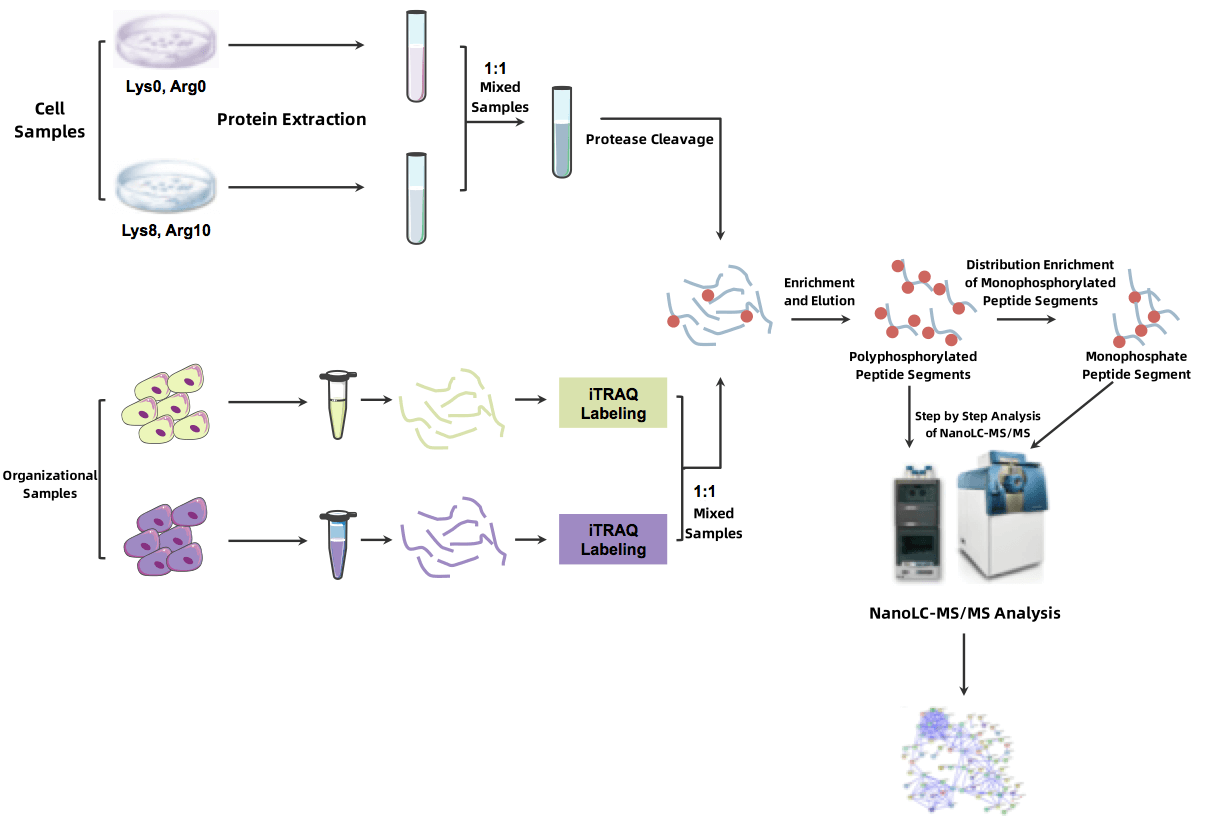Multipathway Phosphoproteomics Service
- Neurodegenerative Diseases
- Tumor Pathogenesis
- Pharmacological Target Research
Protein phosphorylation is a reversible post-translational modification where amino acid residues in proteins are phosphorylated by kinases, which attach covalently bonded phosphate groups. This modification alters proteins' conformation, potentially activating, deactivating, or changing their functions. Research into protein phosphorylation enhances our understanding of biological processes and helps to define the mechanisms of diseases linked to abnormal phosphorylation levels. Due to the low concentration and broad dynamic range of phosphorylated proteins in biological samples, enrichment of phosphorylated peptides is essential before performing quantitative proteomics to increase the detectability of these modifications.
Services at MtoZ Biolabs
1. Target Protein Multipathway Phosphorylation Analysis
MtoZ Biolabs can perform multipathway and multisite phosphorylation detection for designated target proteins, capturing modification changes under different stimulations or treatment conditions. High-resolution mass spectrometry enables precise quantification, helping researchers rapidly elucidate regulatory patterns at key sites.
2. Multipathway Phosphoproteomics Analysis
MtoZ Biolabs utilizes advanced LC-MS/MS platforms combined with phosphorylation enrichment techniques to simultaneously identify and quantify large numbers of phosphorylated proteins across multiple signaling pathways. This analysis can systematically reveal pathway-level modification profiles and provides comprehensive data support for understanding cellular regulatory networks.
Analysis Workflow

Figure 1. Multipath Protein Phosphorylation Proteomics
Sample Submission Requirements
1. Sample Type
(1) Tissue Samples
The recommended sample requirements are 2 g for plant tissues, 100 mg for animal tissues, 50 µL for serum/plasma (with plasma anticoagulated using EDTA), 2 mL for urine, and 2x107 cells for cell samples. For yeast and other microorganisms, a dry weight of 500 mg is recommended.
(2) Protein Samples
Ensure a minimum of 1 mg total protein. Use standard lysis solutions for tissue and cell extraction.
2. Sample Shipping
Transport samples with adequate dry ice and opt for expedited shipping to minimize degradation risks during transit.
3. Sample Testing
We evaluate all samples before commencing the actual experiments. Testing must confirm sample integrity before proceeding with formal analyses.
Applications
MtoZ Biolabs, an integrated chromatography and mass spectrometry (MS) services provider.
Related Services
Post-Translational Modifications Proteomics Service
How to order?







